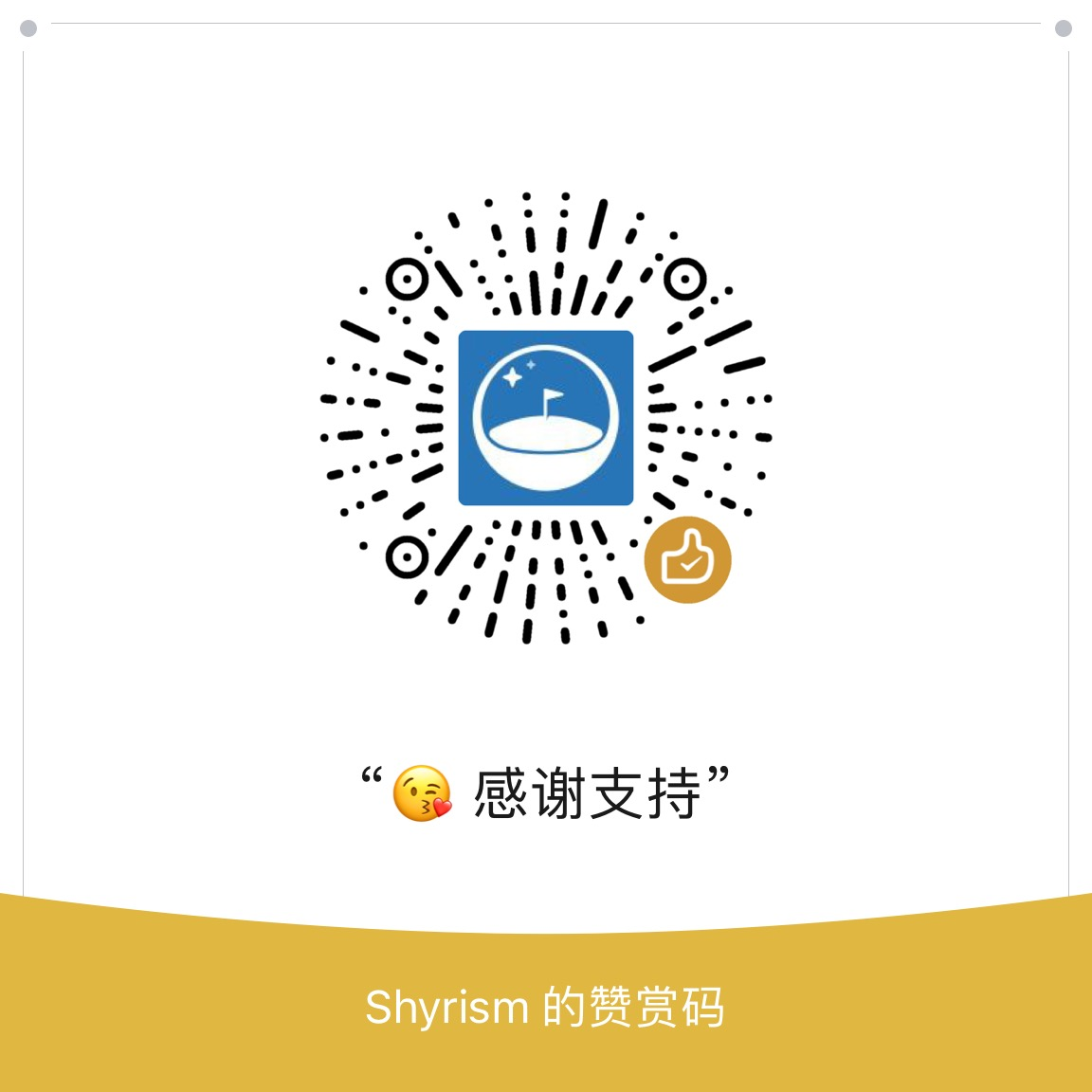Original link: https://shyrz.me/news-20-my-world/

22·08·28 Issue 20

Everyone, happy autumn!
For the sake of space, there are only two selected articles in this issue. “How to Think Clearly Like Ludwig Wittgenstein” draws nourishment from the early work “On the Philosophy of Logic” by the famous Austrian philosopher and pioneer of analytical philosophy Ludwig Wittgenstein, for how to think clearly Pointed the way; How did the Nordic countries become so democratic? “Introduces the modern history of the Nordic countries that we know little about, and clearly explains how they evolved into today’s democracies and what the author considers the most critical.
Hope that inspires.
How to think clearly like Ludwig Wittgenstein
→ Original link: Ludwig Wittgenstein on Thinking Clearly / Thomas Oppong / Hive / August 14, 2022
Clear thinking is like a jigsaw puzzle: sometimes, some pieces just don’t fit. Sometimes you’re tempted to throw the whole puzzle box away because you think it’s all too messy, but you don’t, you keep trying new things, trying to figure out a way to get out of the mess and finding a solution for each problem .
Ludwig Wittgenstein said: “Problems are solved not by providing new information, but by sorting out what we already know.”
Ludwig Wittgenstein is widely regarded as one of the most influential figures in the history of philosophy. He is known for challenging stereotypes about language, logic and knowledge. In short, he questions everything we think we know about how to think. He has insight that human understanding is not made up of an isolated set of concepts, but is better understood as a network of interconnected minds.
Few are as respected and misunderstood as a genius like Ludwig Wittgenstein. A pioneer of modern philosophy, Wittgenstein is best known for his book Tractatus Logico-Philosophicus ( Tractatus Logico-Philosophicus ).
In this book, Wittgenstein argues that the world is purely logical and therefore fully knowable. This, he argues, is the worldview on which everything else rests. If you can change your mind based on logic, then you are a free thinker and part of an elite group of people who, as long as they remain logically consistent throughout their lives, can definitely see what is true.
We must always keep an open mind in order to grow into a more complete human being (i.e., growing into a complete human being includes choosing to believe in new ideas rather than old ones). So if you want to be smarter and more cognitively complete, you must embrace lifelong learning.
Wittgenstein said: “A man will be imprisoned in a room whose door is unlocked and opened inwards; as long as he does not think of pulling instead of pushing.”
To move things forward, we must first admit that they are not good enough at the moment. At the same time, it must be acknowledged that our current troubles have their root causes — problems that can be solved if we approach these challenges with the right mindset.
Wittgenstein believed that we cannot ask what a thing is – only how it works. In other words, if we cannot clearly define a thing, then it cannot be clearly understood either; instead, its use should be seen as a “hypothetical” condition until another definition is found for it.
Language is the limit of your reality
I am my world. – Ludwig Wittgenstein
Ludwig Wittgenstein once wrote: “The limits of my language are the limits of my world”. He advises us to adopt a “what if” mindset when thinking about our lives and the world around us.
Wittgenstein believed that we cannot fully describe or fully grasp reality through our language. He suggested that we should think about things as long as it takes to understand them. This led to a philosophical movement known as “logical positivism,” which emphasized the importance of clarity and precision in thinking.
Wittgenstein held a strong and thoughtful view of language as a reality. He believed that language was something indeterminate and therefore could not be used to express anything definite or factual. Rather, language is a tool for describing the world and expressing our thoughts about it. The best way to understand this point is through an analogy: language is like a ladder, with different levels representing different aspects of the world. For example, if you wanted to describe how I looked, you could describe my nose, eyes, hair, or height, as well as other characteristics you have about me, such as my personality or how you feel when you think about me. These descriptions are all part of describing me; they do not describe anything other than me, so they cannot be used to convey all the facts about me.
Wittgenstein said: “Language disguises thought”. In recent years, however, people have moved away from this emphasis on accuracy and clarity in favour of a more subjective approach to thinking. He observed that the language we use is complex and often ambiguous, making it difficult for us to understand exactly what we mean when we use certain words. As a result, we often misunderstand what others mean and end up making mistakes. When you notice you made a mistake, try to figure out why you made the mistake. If you can’t figure it out, it means your reasoning is flawed, so you should revisit your facts and assumptions and try again.
Wittgenstein believed that when we make decisions or draw conclusions, we have to take context, situation and circumstances into account, because everything is relative and has context. If we don’t take into account other factors such as culture, history, etc., then our decisions may not be as effective as others. “Anything that can be said can be said clearly,” he said.
Bertrand Russell tried to explain how people think by focusing on logic and reason. He believed that if people knew how to properly apply the basic principles of logic, they could reason in an orderly manner. But he also recognizes that there are many situations in which these principles do not apply, which can lead to confusion and misjudgment.
This shift in thinking is reflected in the growing interest in “mindfulness,” a way of being aware of the present moment without getting bogged down in endless arguments or overthinking. As with other areas of life, whether you think clearly depends on your overall attitude and approach.
How did the Nordic countries become so democratic?
→ Original link: How Did Nordic Countries Get So Democratic? / Erik Engheim / Medium / July 28, 2022
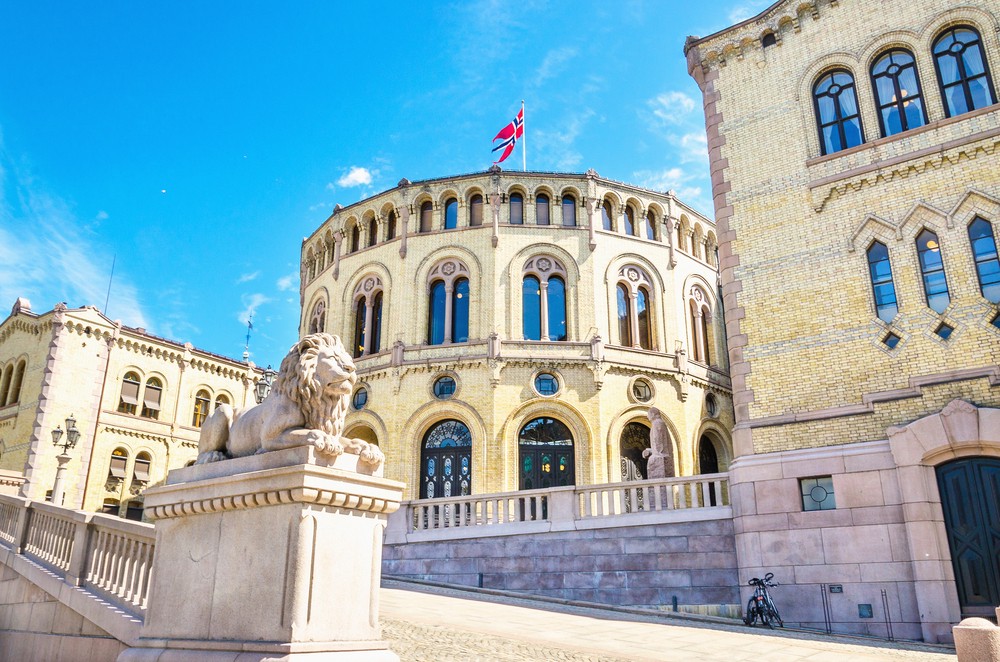 Norwegian Parliament in Oslo
Norwegian Parliament in Oslo
Democracy is easy, right? Just hold an election and choose a leader? it’s not true. We have seen in countless countries from Iraq to Afghanistan that holding elections alone does not create a fully functioning democracy. This also applies to developed countries such as Singapore and the United States. Both are classified as “flawed democracies”. The map below shows that only countries in dark green are considered fully democratic. The top-ranking countries are all Nordic countries, with only New Zealand coming in second.
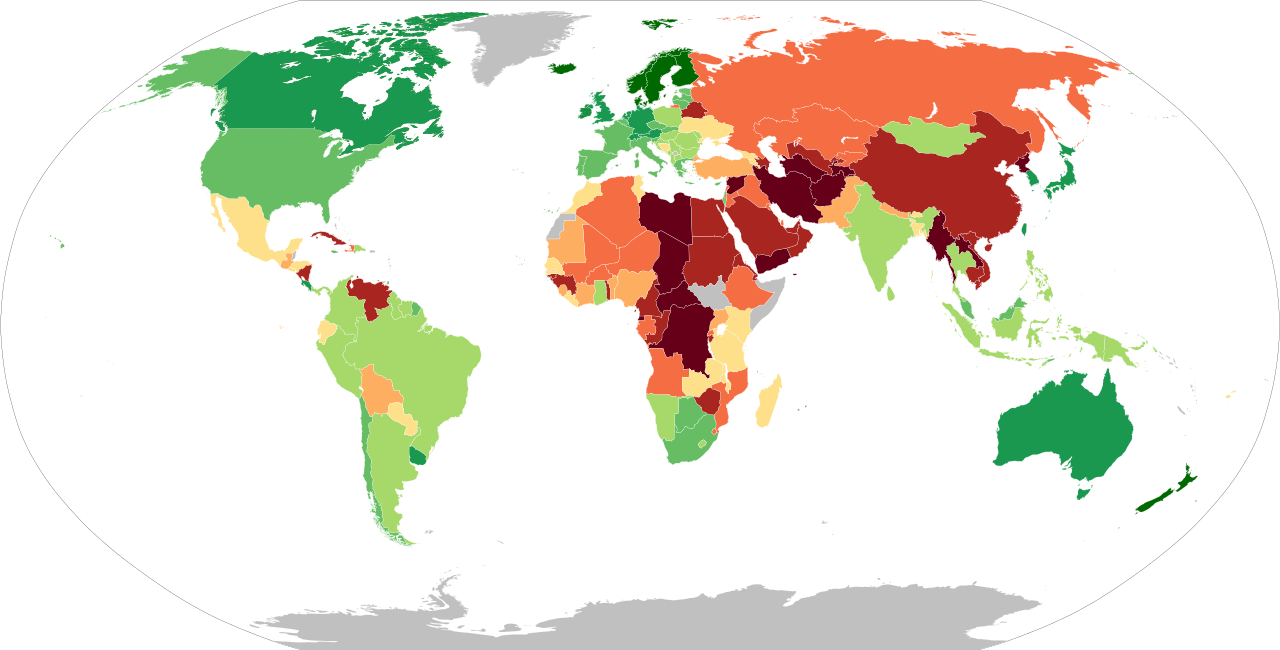 Democracy Index / Darker green means more democracy
Democracy Index / Darker green means more democracy
Observations such as these make many in the developing world skeptical of democracy. Such experiences are not new. In the 1930s, as people lost faith in democracy, belief in totalitarianism spread in Western countries. The fascists took power in country after country, abolishing democracy: Greece, Hungary, Portugal, Spain, Italy, Japan and Germany. The reality is that a viable democracy is hard to come by. In the 1930s, when Hitler came to power, Germany didn’t have much time for democracy to work. Democracy existed only after the end of World War I in 1918, during which the country suffered heavy war reparations and the Great Depression that followed the collapse of the New York Stock Exchange in 1929.
In this article, we take a look at how the world’s top-ranked democracies, the Nordics, were created.
How to build an effective democracy?
Democracies are rarely fully formed and perfected. Few countries can go from extremely oppressive regimes to perfect democracies. Democracies evolve from flawed democracies, which in turn may evolve from hybrids, absolute monarchies, or dictatorships.
Therefore, this article will discuss two important issues:
- How to advance partial democracy to full democracy over time?
- How to create responsible and sane public groups in electing representatives and leaders?
The former is about having some kind of process by which society can gradually move towards democracy. The latter is about what exactly is needed to create the citizens needed for a fully functioning democracy.
Many constitutions emphasize the need for an enlightened constituency. Voters cannot be effective voters if they are blinded to society, government, or the important issues of the day. Instead, they will be swayed by demagogues, populists and conspiracy theories. Another important job is to create an atmosphere of solidarity, a sense of being in the same boat and that we are all responsible to each other. If that can’t be done, everyone will be working in a different direction, and democracy will end up being a bunch of people trying to talk to each other.
The rest of this post will attempt to answer these two basic questions by working backwards. The top box represents these questions, and each section is a supporting blue box that answers a question or higher-level challenge. For example, if I ask you how to pick good leaders, the next section will answer: Create an enlightened public. However, each section generates new questions that need to be answered.
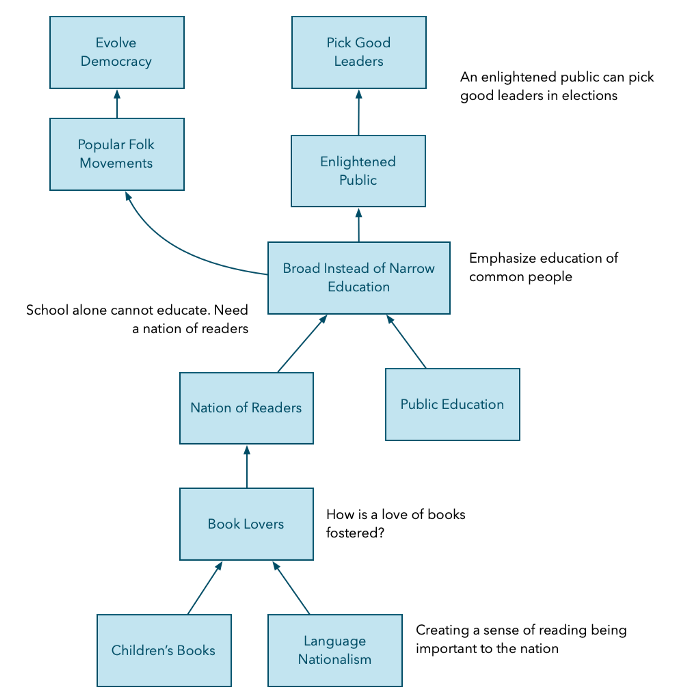 How do we go back to the main drivers that allow us to build a society where sensible leaders are chosen by voters. Democracy itself will fail if voters do not choose sane leaders
How do we go back to the main drivers that allow us to build a society where sensible leaders are chosen by voters. Democracy itself will fail if voters do not choose sane leaders
How to create an enlightened public group?
Education is the key, but does that mean the success of a democracy is proportional to how many people have a higher education? It is crucial to distinguish between the educated elite and the ordinary with a general education. There will always be more cleaners, McDonald’s clerks, store employees and truck drivers than college professors. Every one of them has the right to vote in a democracy. The educated elite cast only a fraction of the total vote. Most of the votes will be cast by ordinary people who work at checkouts, drive trucks, work on farms, do customer support and pick products in warehouses. How well the average truck driver is educated is more important than how good the math professor is, because truck drivers will have more votes.
 Political leaders are elected by ordinary people like this one, and democracy relies on the education of ordinary people
Political leaders are elected by ordinary people like this one, and democracy relies on the education of ordinary people
Nor can we think of education as something that happens only in formal institutions such as schools and universities. Learning is a lifelong pursuit. People have to learn through their lives and keep themselves updated. How do i do this?
These problems can be simplified to:
- The difference between broad education and elite education.
- Create a learning culture. A culture of readers and curious people who ask and discuss questions. A group of people involved in the political process.
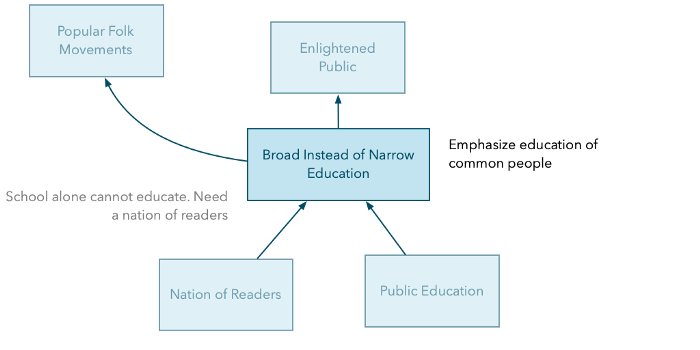 How an enlightened public needs to focus on broad education rather than perfecting the education of the intellectual elite
How an enlightened public needs to focus on broad education rather than perfecting the education of the intellectual elite
Broad Education vs. Elite Education
When it comes to higher education, the Nordic countries have historically lagged behind. The UK, Italy, Spain and many other European countries have had well-respected universities for hundreds of years before most Nordic countries even had universities. In Norway, for example, we didn’t have a university until 1811. Compare this to the University of Oxford since 1096 and the University of Cambridge since 1209.
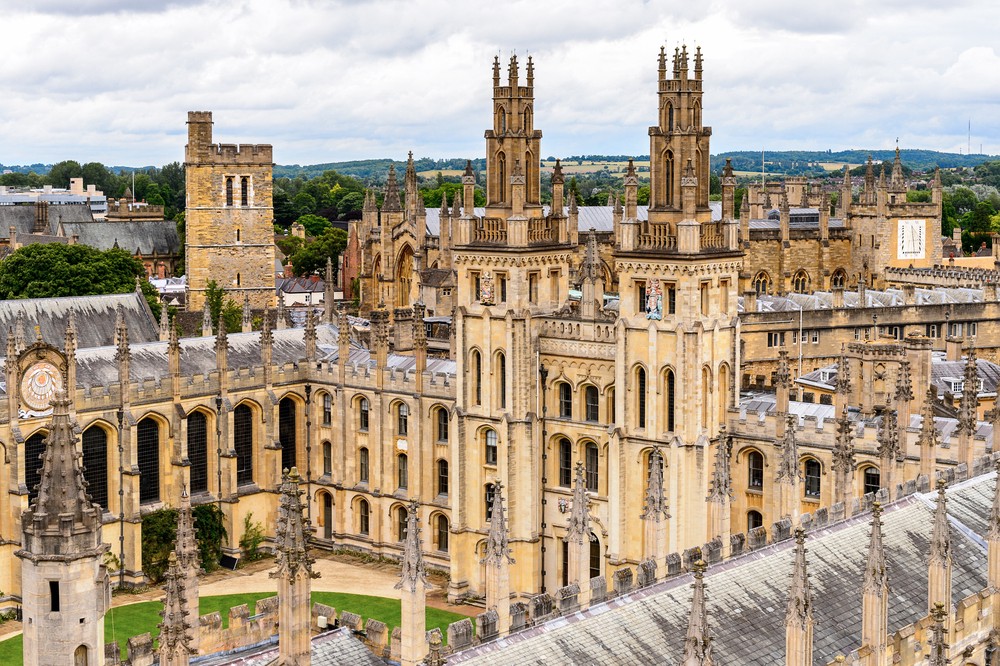 Soul College, part of the University of Oxford, has been around since 1096
Soul College, part of the University of Oxford, has been around since 1096
Even today, the Nordic region is not at the top of the list of highly educated people. Whenever the news reports on our smart move in the Nordics, there are often Americans who say, “Oh, those Nordics are much more educated than we are.”
But are we Nordics really better educated? If you look at the rankings on what percentage of the population has a higher education, in fact, the United States is the best performer. The US even beat most of the Nordic countries.
The Nordic region differs from the UK, US and many other countries in that it does not provide education for the elite, but for the common man. Denmark and Norway introduced public education for all in 1739.
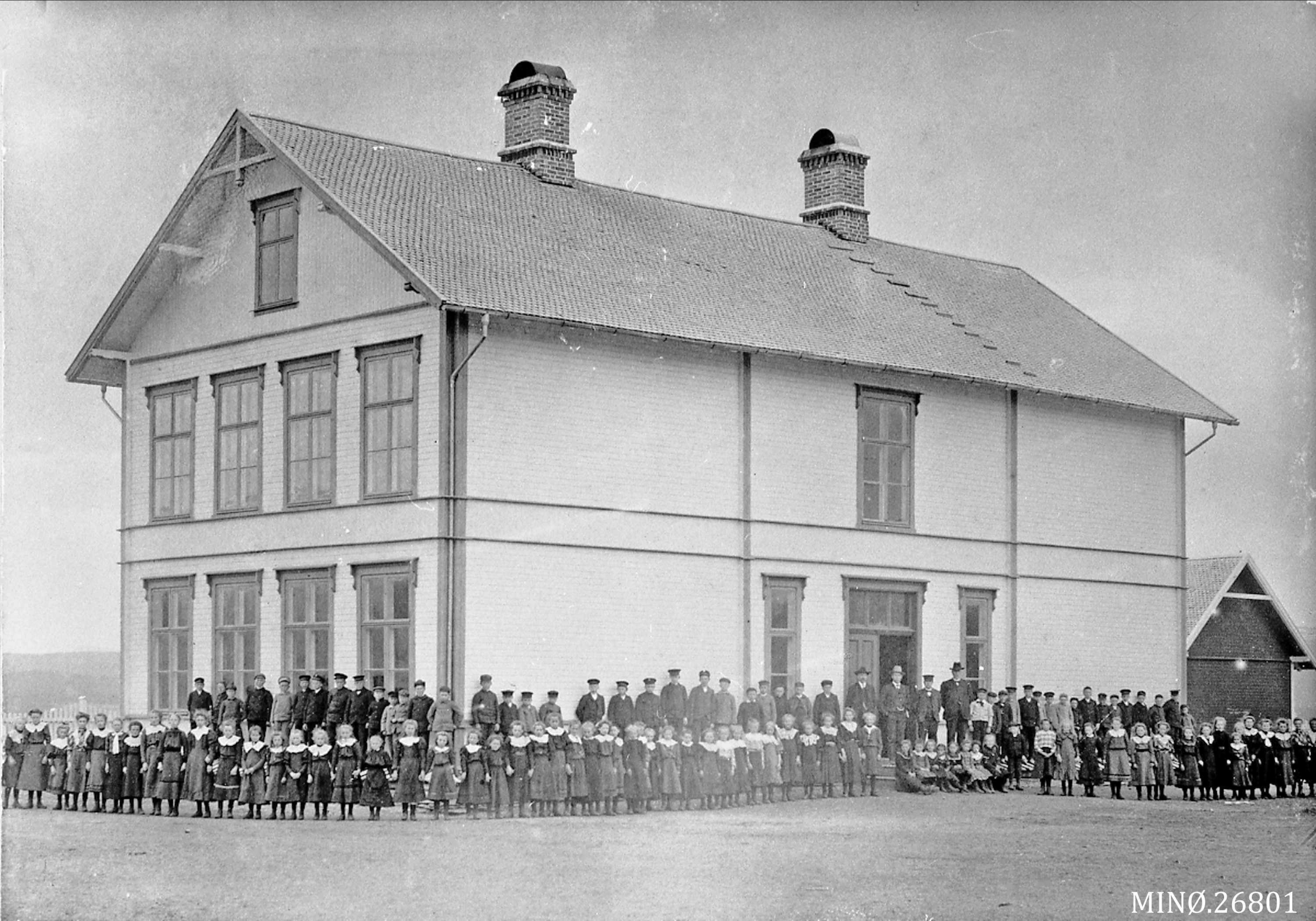 Midbigda School, Norway / 1907 / The Nordics were late to higher education, but a pioneer in providing public education to all citizens
Midbigda School, Norway / 1907 / The Nordics were late to higher education, but a pioneer in providing public education to all citizens
By contrast, the United Kingdom did not have public education until 1870, and the United States did not have it until 1830. Britain’s literacy rate then jumped sharply to 76%. At that time, everyone in the Nordic region could read and write, perhaps even the only fully literate region in the world. It is estimated that in 1739 the majority (90%) of Norwegians were already able to read. It’s just that they don’t know how to write. Writing was not necessary for most farmers, but an analysis of the farms of that era showed that most of them had books and some reading habits.
These observations are part of a wider difference between the Nordic countries and many other highly developed and advanced countries. Nordic countries do not have such a developed elite, but pay more attention to the lives of ordinary people. The Nordic countries developed a wider literary culture for ordinary people.
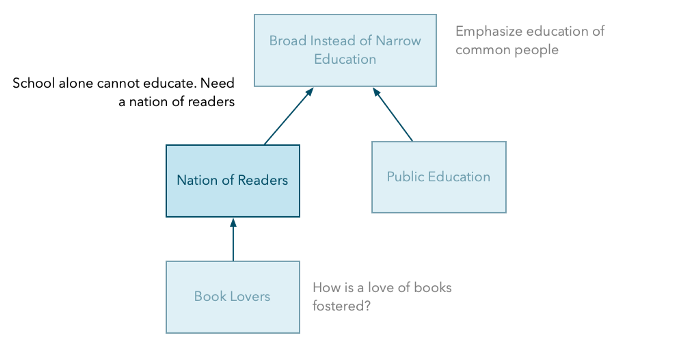 Schools alone cannot create an educated population, a love of reading and learning must also be fostered
Schools alone cannot create an educated population, a love of reading and learning must also be fostered
Reader’s Country
You won’t get very far if you only read and engage in intellectual activities within the walls of a school building or university. Interest in learning must be widely established. One way to do this is to create a literary culture, a culture in which people engage and enjoy reading. The Nordic region does this very well.
For example, in 1879 the Norwegian writer Jonas Lee reported on his visit to Stuttgart, Germany (roughly translated):
The average person here in southern Germany is 50 years behind the Nordic countries in terms of literature and culture. Men, and of course women, do not know their own poets and writers. Writers do not enjoy any respect and respect. They have great authors and books, but wives don’t read what their husbands write. People don’t read what people they respect write.
What Jonas Lee is describing is a general difference between the Nordic countries and the rest of Europe. There were brilliant writers elsewhere, but their readers were mainly from the elite, and the works of the great national poets and writers of northern Europe soon became something even peasants would read. Among the common people, it is considered important to read well. It’s almost a shame for writers who don’t know their own country.
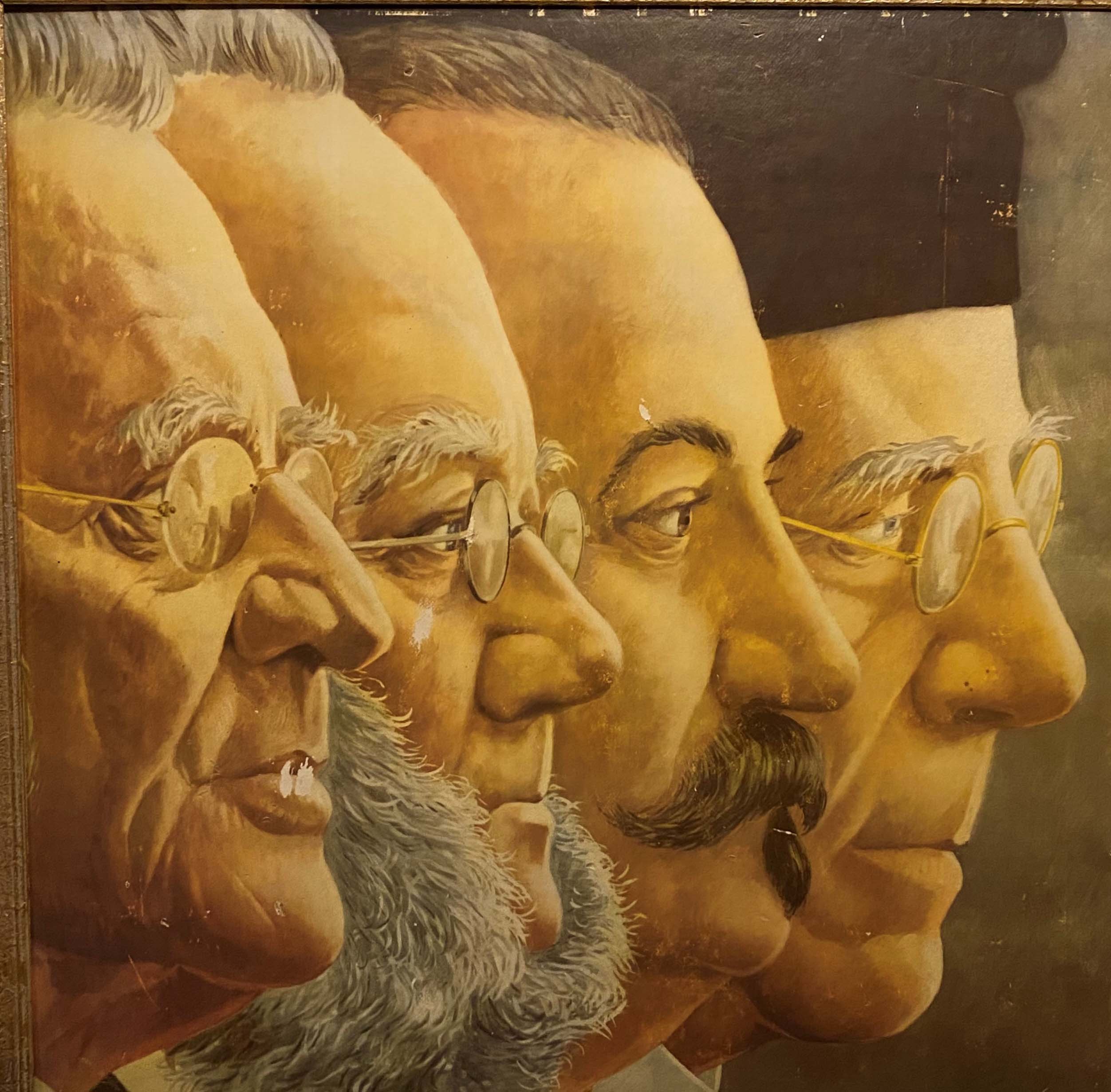 Four great figures: Björnsson, Ibsen, Sheran and Lee, representatives of Norwegian literature since the 19th century
Four great figures: Björnsson, Ibsen, Sheran and Lee, representatives of Norwegian literature since the 19th century
My mother grew up in post-war Norway. Her father came from a family of native tenant farmers. He lost his parents when he was a child. He got a job at a paper mill in my hometown of Moss. My grandmother was a housewife. In other words, they are simply Norwegian working class. Norway was far behind the United States at the time. There was maybe a car or two on the street where my mother grew up, but neither of her parents had a car. Cars are luxury imports that you have to apply to the government to buy. Limited foreign exchange cannot be used to buy what is considered almost a luxury.
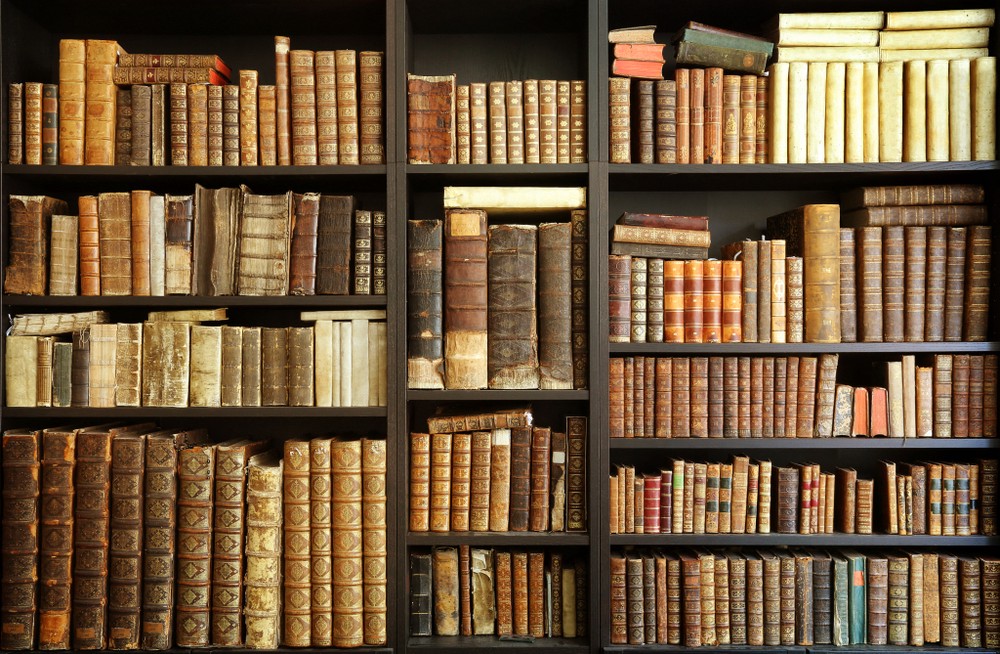 Postwar Norwegians grew up not with cars and phones, but with tons of books
Postwar Norwegians grew up not with cars and phones, but with tons of books
In their home, however, there is a bookshelf with all the classics of Norwegian literature: Henrik Ibsen, Alexander Kieran, Knut Hamsun, and more. My mother grew up an avid reader. For my father, it was no different. They lived in Oslo, which was almost a luxury by the standards of the day, as they had their own bathroom and toilet, but were small. My father and his sister had to share a room and their parents slept in the kitchen. However, they still have a lot of books. My grandfather loved all kinds of books about Norwegian polar explorers like Friedjof Nansen and Roald Amundsen.
In other words, ordinary people in Norway are relatively poor compared to people in other advanced countries such as the US, UK and Germany. But what sets them apart is that they are avid readers. In the 1870s, the Nordic countries were not much richer than Spain or Italy, but everyone could read and write, when only 47% of Spaniards and 42% of Italians could.
But how is this culture created?
create book lovers
Habits and interests are often formed early in life. It’s not without reason that the Nordic countries place so much emphasis on children’s literature and libraries. Although the combined population of the Nordic countries is not much larger than a large Chinese city, the region has long had a strong presence in several literary genres. Nordic noir fiction is famous all over the world, and many children around the world may have been exposed to Nordic children’s books at some point.
- Ronia, daughter of Pippi Longstocking and the Robber, by Astrid Lindgren
- The Moomins by Tove Jansson
- The Ugly Duckling, The Emperor’s New Clothes or The Little Mermaid by Hans Christian Anderson
- “Sophie’s World” by Jostan Gard
- The Pancakes of Findus by Sven Nordquist
- The Tale of the Three Goats (similar to the Three Little Pigs)
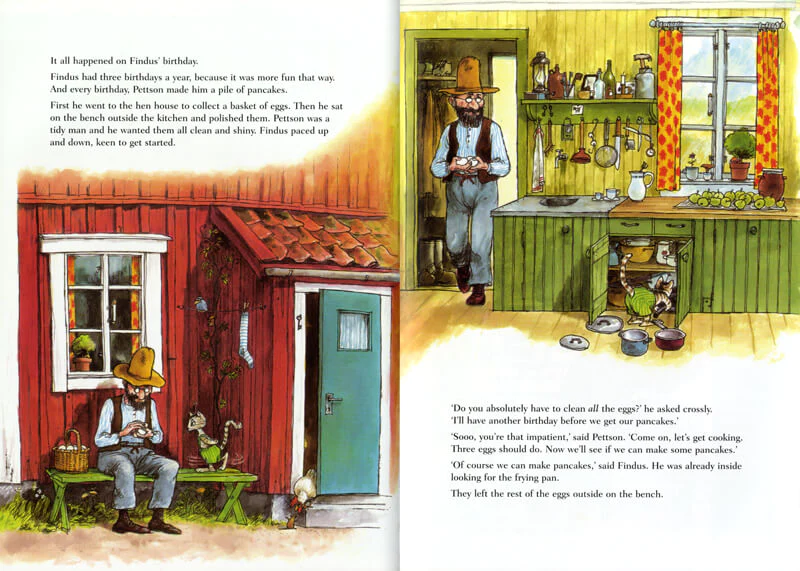 A modern Scandinavian children’s story about an old man and his cat Findus
A modern Scandinavian children’s story about an old man and his cat Findus
In the Nordic countries, children’s reading is very serious. It has been pushed and facilitated at every level. Growing up, I never thought this was anything special until the 2020 US presidential election when Joe Biden talked about getting kids to learn more words on TV and record players. It’s interesting to watch how commentators and Americans make fun of his references to old technology, but to me, a Scandinavian, it’s surprising that there’s no mention of dictating reading to my own kids. It occurred to me that in the American context, it is rare to see discussions about fostering the joy of reading books in children. In Norway we have a word for it, “leseglede”.
In Norway, the creation of “Leseglede” is considered crucial. This is why the government spends a lot of money on libraries. Not just city libraries, but collections in preschools, elementary schools and elsewhere. In Finland, they even have library buses with books that go to remote areas to make sure everyone has access to books.
In fact, I think the Nordics take the concept of “happiness” much more seriously than many other countries. Norway, despite having a population of only 5 million, has more total Winter Olympic medals than any other country. Finland and Sweden have the most Olympic summer medals per capita of any country. “Idrettsglede”, the joy of movement is the key strategy behind this success. In an agreement with China, Norway had agreed to train Chinese winter sports athletes. They found that they spent the most training time having fun with the sport. They did eventually do it, but as soon as the Norwegian coach left, the Chinese gradually reverted to the old system and killed the joy.
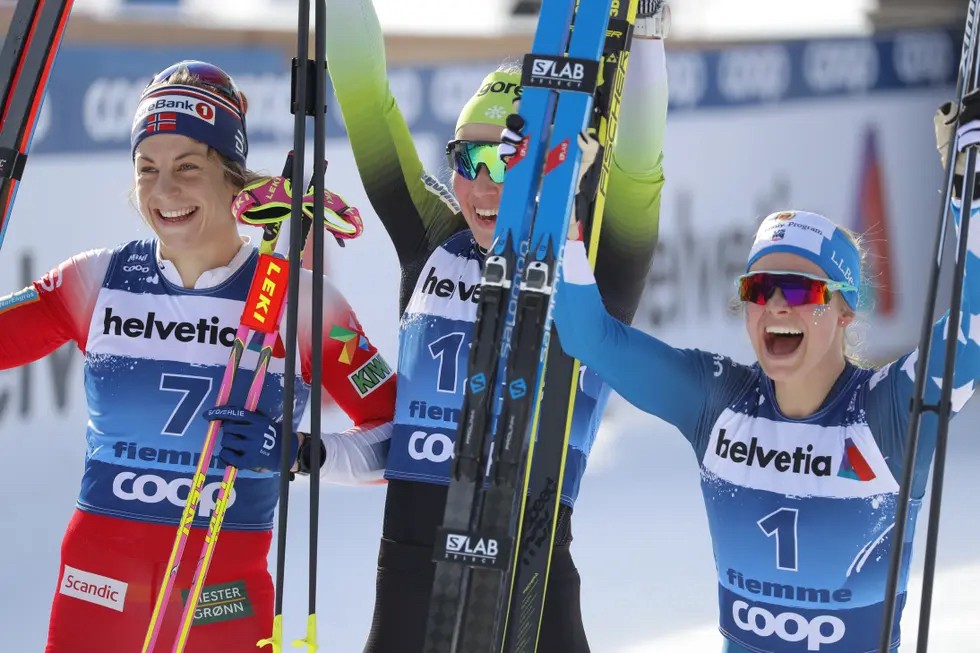 One of the Nordic countries’ ideals in sports is to create self-motivation through the joy of sports, “sportsglede”
One of the Nordic countries’ ideals in sports is to create self-motivation through the joy of sports, “sportsglede”
The Nordic view is that people cannot be monitored and supervised anytime, anywhere. Education cannot happen alone when people are in school. Instead, people must develop an ego drive to improve and learn. Sports training in Norway is all about turning athletes into their own trainers, allowing them to push themselves towards success, rather than leaving the job entirely to the coach. Likewise, school teachers cannot be left alone with the responsibility for ensuring children’s learning. By fostering curiosity and a love of reading, you can put people on a lifelong journey of continuous improvement.
It’s perhaps no accident that many of the toys that nurture children’s creativity and spirit of exploration come from Nordic countries, such as Lego bricks, Brio’s wooden railroad, and Minecraft.
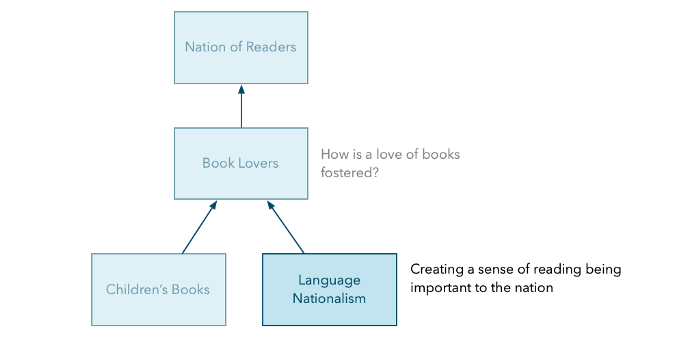
How do you convince citizens that reading is important? Associating reading with national identity, reading the work of national poets means you care about your identity and culture
The role of nationalism in developing literacy and democracy
The development of nationalism in Norway and Sweden continued into the 19th century, but each country’s context was very different. The end of the Napoleonic Wars in 1815 was the catalyst. In 1814, Crown Prince Karl Johan of Sweden led the Swedish army into Denmark, forcing Denmark to abandon Norway and allowing Sweden to form an alliance with Norway under the leadership of the Swedish king. These actions led to a series of evenings at which Norwegians rekindled ancient aspirations for sovereignty. Delegates from all over the country gathered in Ezvor to create a Norwegian constitution inspired by the American Declaration of Independence of 1776 and the French Revolution of 1789.
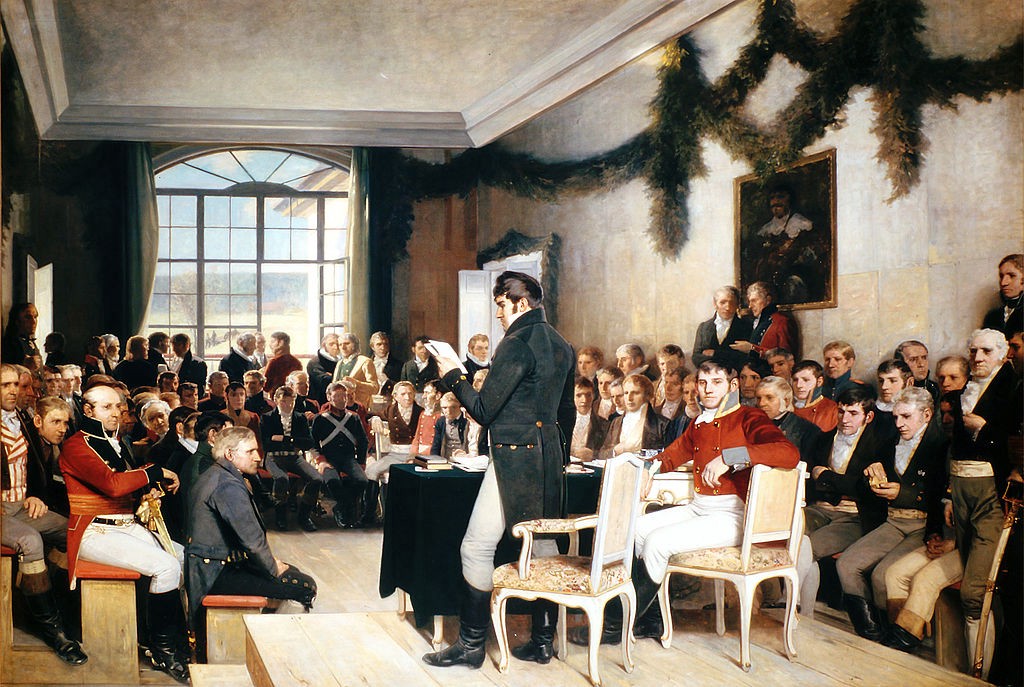 In 1814, representatives from all over Norway met in Ezvor to formulate one of the most liberal constitutions in Europe
In 1814, representatives from all over Norway met in Ezvor to formulate one of the most liberal constitutions in Europe
Norway’s independence lasted only a few months before the Swedish invasion, but Norway was able to fight back vigorously against Sweden, allowing it to agree to a compromise. In the redrafted Norwegian constitution, parliament was given considerable powers. However, Norway was not yet fully formed as a democracy at this time. The Norwegian government is chosen by the Swedish king, and the Norwegian parliament does not meet often. While voting laws are liberal by European standards, with a full 40 percent of the male population over the age of 25 having the right to vote, it still excludes vulnerable groups and women without property.
This new status and the end of Danish rule, which we Norwegians often call 400 years of slumber, became the point of departure for a surge of patriotic nationalism. Norwegians want to re-establish their identity. To put this into perspective for Americans, consider that Native Americans were forced to learn English and become like mainstream Americans. Naturally, many will object to this process and take pride in their cultural heritage and language. The same is true for Norwegians. Norwegians wanted to create a Norwegian written language. Before 1814, all writing in Norway was written in Danish, and the elites who ruled Norway spoke a mixture of Norwegian and Danish. In fact, many officials and bureaucrats in Norway are from Denmark and speak Danish.
A similar process took place in Finland. Sweden lost Finland to Russia in 1809 as part of the Napoleonic Wars. Just as Sweden accepted considerable Norwegian autonomy so that the Norwegians could accept Swedish rule without fierce resistance, the Russians chose to give Finland considerable autonomy to accept Russian rule. The net effect was that Finland, like Norway, was given a parliamentary form and expanded freedoms, which created the conditions for a wave of patriotic nationalism in Finland.
Literacy driven by nationalism
Finns, like Norwegians, have been unable to write in their own language. In Finland, Swedish has always been the predominant written form and is the language spoken and used by elites in government, business and other fields. During this period in Finland, the epic Finnish poem “Kalevala” was born.
Kalevala is considered a national epic of Karelia and Finland, and is one of the most important works of Finnish literature along with The Tales of Ensign Stål by JL Runeberg and The Seven Brothers by Aleksis Kivi. Kalevala played an important role in the development of Finnish national identity and the intensification of the Finnish language conflict, which culminated in Finland’s independence from Russia in 1917.
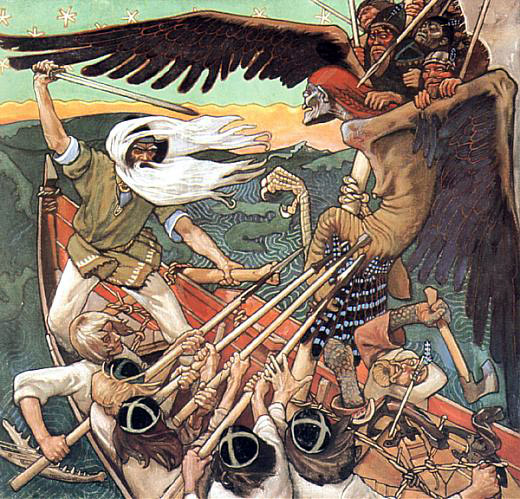 Kalevala’s hero Väinämöinen defends Sampo
Kalevala’s hero Väinämöinen defends Sampo
Norway has writers Asbjörnsen and Moi who collect Norwegian fairy tales like the German brothers Grimm. They traveled all over the country and had locals tell some stories, which were then written down and collected as Norwegian Folk Tales. This is where many stories about Norwegian trolls are found today. The stories are written in a way that is more in line with the way actual Norwegians speak than the mixed Danish language of the urban elite.
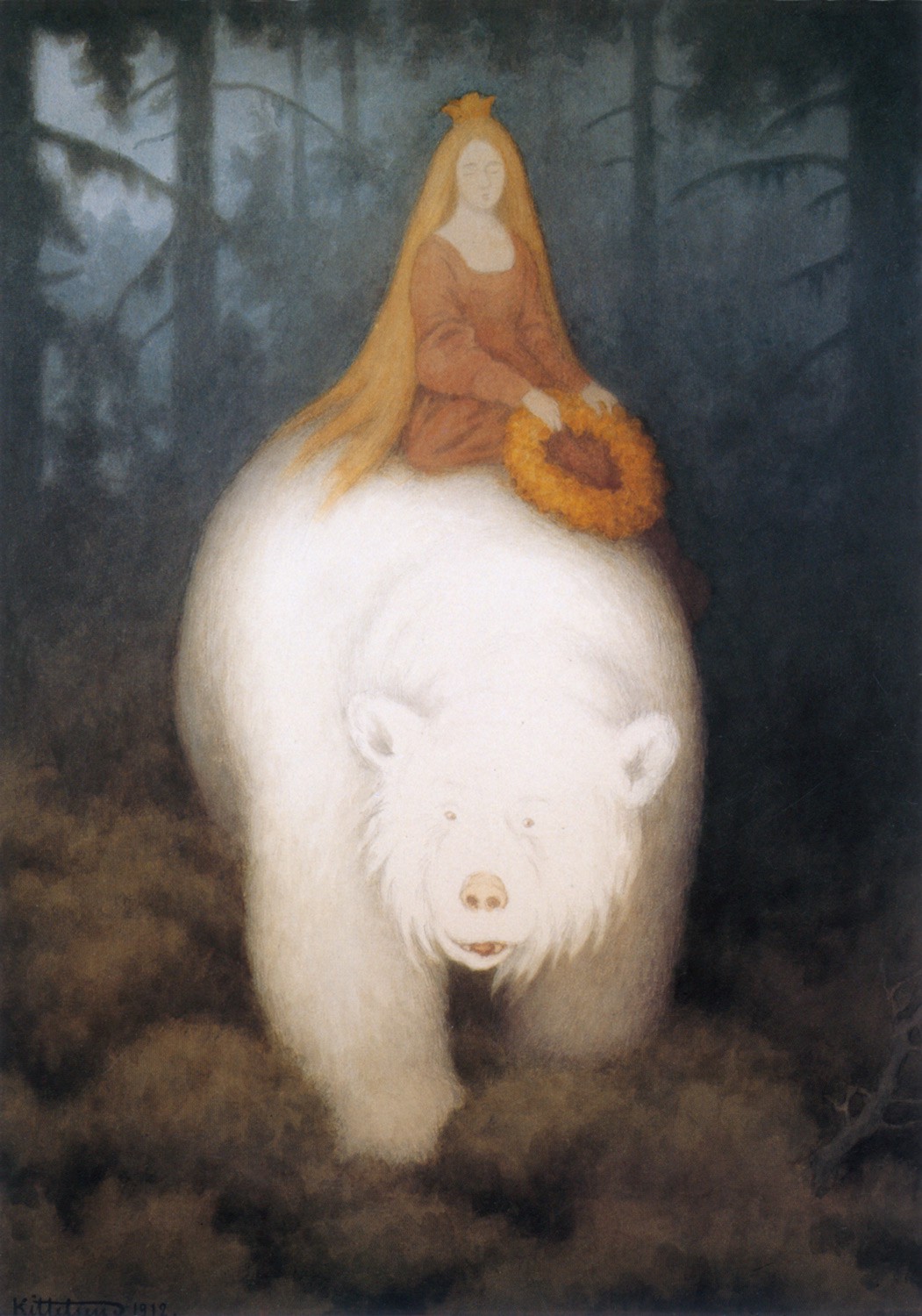 The Norwegian fairy tale “Valemon the King of the White Bear” by Norwegian artist Theodor Kittelsen
The Norwegian fairy tale “Valemon the King of the White Bear” by Norwegian artist Theodor Kittelsen
Later, well-known writers appeared in Norway, such as Björnsjörn Björnsson, Alexander Kieran, Jonas Lee, Henrik Ibsen and Amalia Skram. These writers write in a more Norwegian way.
The problem with Norway is that no one can agree on what exactly Norwegian should be. Norway is a fairly large country with a complex topography that leads to isolation of people’s lives and the formation of very different dialects, which can almost be regarded as different languages. Different intellectuals employed different strategies to try to create a written language from a spoken language with no clear standard.
Norwegian language researcher Knud Knudsen worked to create a written form of Norwegian based on the mixed languages spoken in major Norwegian cities. His approach basically started with Danish, making it more Norwegian, and later evolved into two different Norwegian written forms, called Bokmål and Riskmål.
Norwegian linguist and poet Ivar Aasen took the opposite approach. Assen attempted to build a Norwegian language from scratch, based on various Norwegian dialects. His work led to a Norwegian written form known as Nynorsk. As a result, many different written forms of Norwegian have existed over the years, all using different grammatical structures and vocabulary and competing with each other.
The conflict between these written forms has not been resolved. Norway has stuck to two written forms until now. This is an ongoing source of political issues in Norway. In the American context, the closest analogy is perhaps the issue of abortion. Abortion is not an issue in Norway, but language is one that people never tire of.
The same will be true in Finland. Language is about your national identity, which is why Norwegians and Finns alike are obsessed with reading and writing. While literature may be an issue for literature professors in big countries, for people in small countries like Norway and Finland, reading has become almost a patriotic obligation. In Finland, for example, most citizens cannot read published books and newspapers because they are all in Swedish. Finnish is too different from Swedish to bridge the gap with Swedish easily. The marginalization of their language means that as a people they have no news or literature to read. During the Crimean War, Finnish positions were attacked, but most Finns couldn’t learn about it because it was all written in Swedish.
As a result, supporting writers has almost become a national security issue. In Norway, literature became important enough that parliament would actually discuss financial aid for specific writers, such as Henrik Ibsen. Even today, writers and newspapers enjoy strong political and financial support.
In other countries, the currency may feature military leaders, presidents, kings or queens. By contrast, Norway’s currency, until recently, had the face of a writer printed on it.
Writers play the same role in Norwegian consciousness and history that founding fathers like Thomas Jefferson played in American history and consciousness. Norwegian writers are not mere writers, but active participants in political discourse and the development of Norwegian democracy.
Democracy driven by nationalism
In Norway, the parliament is elected by the Norwegian people, while the government is largely chosen and controlled by the Swedish king. Throughout the 19th century, the Norwegian parliament would exert more and more control and try to take power away from the king until Norway developed a parliamentary system, which is how the current Norwegian political system works. Under the parliamentary system, the king becomes an image spokesperson without any actual political power, and the government is chosen by the majority in the parliament. While the king still formally runs the country, his ministers are not chosen by him, so his actual power becomes symbolic.
Because the king was Swedish, fighting for more power for the Norwegians meant fighting for more democracy. A more democratic system would transfer more power to Norway. In Sweden, the opposite is true, where more democracy means less power in Sweden. This dynamic has a peculiar effect: in Norway, the people for democracy are nationalists, while in Sweden the nationalists are against democracy.
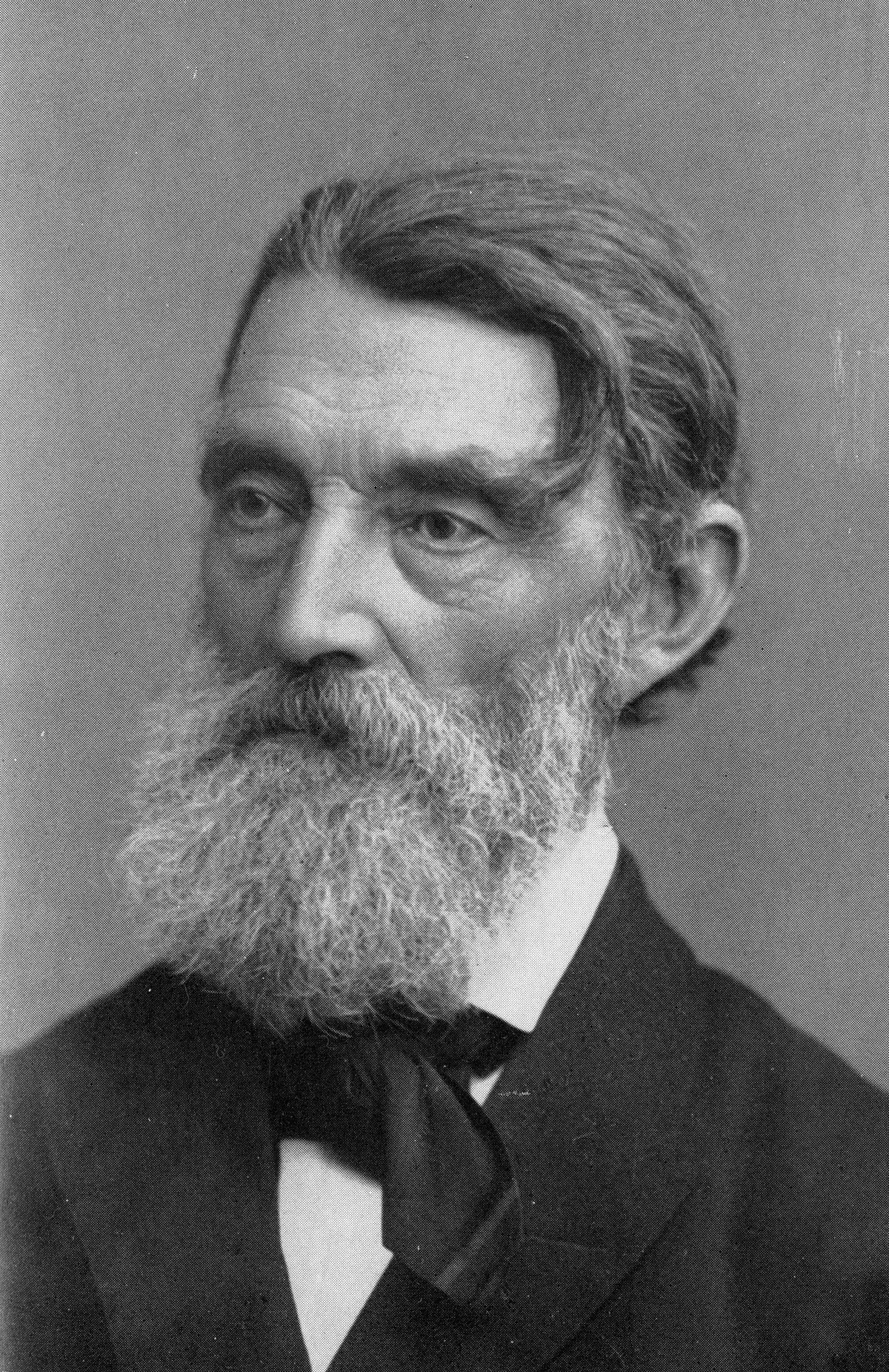 Johan Sverdrup, Prime Minister of the Liberal Party since 1884, introduced a parliamentary system that deprived the King of Sweden of most of his powers
Johan Sverdrup, Prime Minister of the Liberal Party since 1884, introduced a parliamentary system that deprived the King of Sweden of most of his powers
Thus, nationalism developed into a left-liberal ideology in Norway, while nationalism developed into a conservative right-wing ideology in Sweden. For example, Norwegian nationalist, author and left-wing activist Henrik Wergeland fought hard against an unfortunate passage in the Norwegian constitution that banned Jews from entering Norway. So, ironically, the most famous anti-racist person in Norwegian history was a nationalist. Of course, today, it might make more sense to use the word patriot.
Even today, this historical difference creates some friction between Norwegians and Swedes. We are very similar peoples, but when the question of patriotism arises, we are on two different planets. Norwegians tend to be fiercely patriotic, while Swedes don’t.
How Literacy Rates Help Democracy Develop
While nationalism has helped drive Norway’s democracy, literacy itself has also greatly aided Norway’s development from a more limited democracy to one of the strongest in the world. The relationship between literacy and democracy may not be immediately obvious, but it is something those in power have long understood.
In the old American South, slaves could be severely punished for being literate. The US has anti-literacy laws.
Anti-literacy laws also arose out of fears of slave rebellion, especially when abolitionist David Walker published The Appeal to the Colored Men of the World in 1829, which openly advocated rebellion.
Anyone in power is afraid of literacy, because literacy allows people to organize, and in fact, this is the case in Norway and other Nordic countries. Because the population was literate earlier than most other countries, large popular movements of ordinary people for more rights and democracy emerged earlier.
I will pay particular attention to Norway, as it is a major promoter of democracy in the Nordic region. There are four mass movements in Norway:
- Born Again Christians – They are a replacement for the state church, preaching a form of devout Christianity.
- Exercise Moderation – Exercise to reduce or stop drinking alcohol altogether.
- Progressive Nationalists – Secularists who promote progressive and liberal values and Norwegian nationalism. This ideology may sound contradictory, but I’ll elaborate on that later.
- Labour movement – for voting rights for the working class, unions, and better conditions for factory workers.
There are also many smaller sports and secondary sports such as sports. Not every movement is a direct fight for democracy, but these are the process by which ordinary people learn how to run an organization, record meetings, and keep membership lists. The organizations themselves are also actively involved in training their members in rhetoric, argumentation, and anything important to understand and appreciate society in order to advance their cause.
Before these organizations, the bourgeoisie and government officials held a lot of power. These people have a better understanding of how the system and the law work. With better education and relationships, they can argue their point more effectively. Civilian movements level the playing field. It helps that the Nordic countries have a strong tradition of press freedom. In fact, the Nordic region was the first country in the world to achieve press freedom. The first was Sweden, with its Freedom of the Press Act of 1766. Denmark-Norway introduced absolute freedom of the press in 1770, allowing even outright insults, defamation and lies. Ironically, freedom of speech predates democracy in both Sweden and Denmark-Norway. At that time Denmark-Norway was still an absolute monarchy.美国的新闻自由是在几十年后的1791 年随着《人权法案》的出台而出现的。应该指出的是,新闻自由在丹麦-挪威首次颁布时实行不到3 年,但播下了一颗种子,并在后来生根发芽。
在挪威,新闻自由在1814 年随着宪法的颁布而永久性地回归。新闻自由和完全识字的人口相结合,推动了民主化进程。
劳工运动是一个明显的民主化运动,因为它为工人阶级争取并最终成功地给予了他们投票权。请记住,早期形式的民主制度将不拥有财产的人排除在外。
民主传播到斯堪的纳维亚半岛其他地区
虽然挪威在政治上与丹麦分裂,但文化上的联系仍然很紧密。挪威作家继续在丹麦发表作品,即使丹麦人经常抱怨他们的作品不是正确的丹麦文。在文化上,丹麦长期以来一直是老大哥,但在政治上,挪威成为丹麦自由主义者的一个重要灵感来源。当国王克里斯蒂安八世于1839 年登上丹麦王位时,丹麦自由主义者对他推进丹麦的自由主义宪法寄予厚望。原因是,在改名为克里斯蒂安八世之前,他实际上曾在1814 年短暂担任过挪威国王。正是在他的领导下,挪威在埃兹沃尔制定了其宪法。那么,他为什么会改变主意呢?很可能是由于他在挪威的地位要弱得多的原因。他需要得到挪威人的同意,而许多挪威人支持与瑞典结盟,因为瑞典人给挪威提供了比丹麦统治下更多的自治权。
然而,随着挪威民主的发展,它在丹麦也造成了越来越大的压力,要求在那里进行更多的民主改革。
摘要
北欧国家比其他国家更早关注广泛的教育和培养超越少数知识精英的文学文化。其他先进国家注重高等教育及其知识和文化精英,而北欧国家则更注重提高普通民众的素质。
通过让普通人有更好的阅读和教育,北欧国家能够创造出民主的群众运动,推动了植根于民众意愿的快速民主化进程。
我一直想通过这篇文章表达的观点是,一个正常运作的民主制度不仅要依靠受过教育的公众使其存在,而且要保证其质量。一个无知的公众群体没有能力选择好的领袖。
具有讽刺意味的是,不提高普通公民的地位会造成恶性循环:观察到民主失败的知识分子会相信,普通人太愚蠢了,不能被委托处理政府事务,并鼓励发展精英主义或专制主义,这进一步破坏了普通人的智力发展。如果公民不参与政治进程的话。
北欧国家如今在社会和经济发展方面的排名名列前茅,这在很大程度上是因为北欧国家比其他大多数国家更早地发展了一个充分识字和民主的社会。据统计,发达的民主国家更有可能专注于对人类发展至关重要的事情,如婴儿死亡率、犯罪和医疗保健,而不是说美丽的纪念碑和高楼大厦。
其他国家可以从北欧的经验中吸取什么教训?仅仅让人们投票并不足以建立一个有效的民主。如果你想让你的民主发挥作用,那么你需要投资于人民,而不仅仅是最聪明的人。一个木桶的容量取决于它最短的那块木板,这句话同样适用于民主。拥有杰出的科学和商业精英,就好比链条拥有一些钛合金制成的环节,但如果你的大多数环节是生锈的劣质钢,那就不重要了。
这里也有一个希望。发展中国家的许多人在向民主过渡的过程中都会感到幻灭。他们没有看到他们所希望的政策和决策的迅速改善。然而,他们应该知道,他们已经踏上了一条漫长的旅程。民主制度是复杂而微妙的机器,需要时间来发展。但是一旦实现就会很强大,能抵御许多挑战和危机。
速览
- ?生活:短信诈骗套路汇总
- ?观点: 柔和的力量
- ?金融:加密市场万亿美元蒸发,他们是天才还是魔鬼?
- ?职业:经济低迷期的职业规划
- ?摄影: 13 位具有开创性的女性摄影师
捐赠
如果您觉得「Shyrism.News」有价值,请支持和分享给你的朋友或社交网络。
感谢打赏的朋友,请务必备注称呼或邮箱,以免清理账户时丢失数据。
捐赠
如果您觉得「Shyrism.News」有价值,请支持和分享给你的朋友或社交网络。
感谢打赏的朋友,请务必备注称呼或邮箱,以免清理账户时丢失数据。
本文转自: https://shyrz.me/news-20-my-world/
This site is for inclusion only, and the copyright belongs to the original author.

